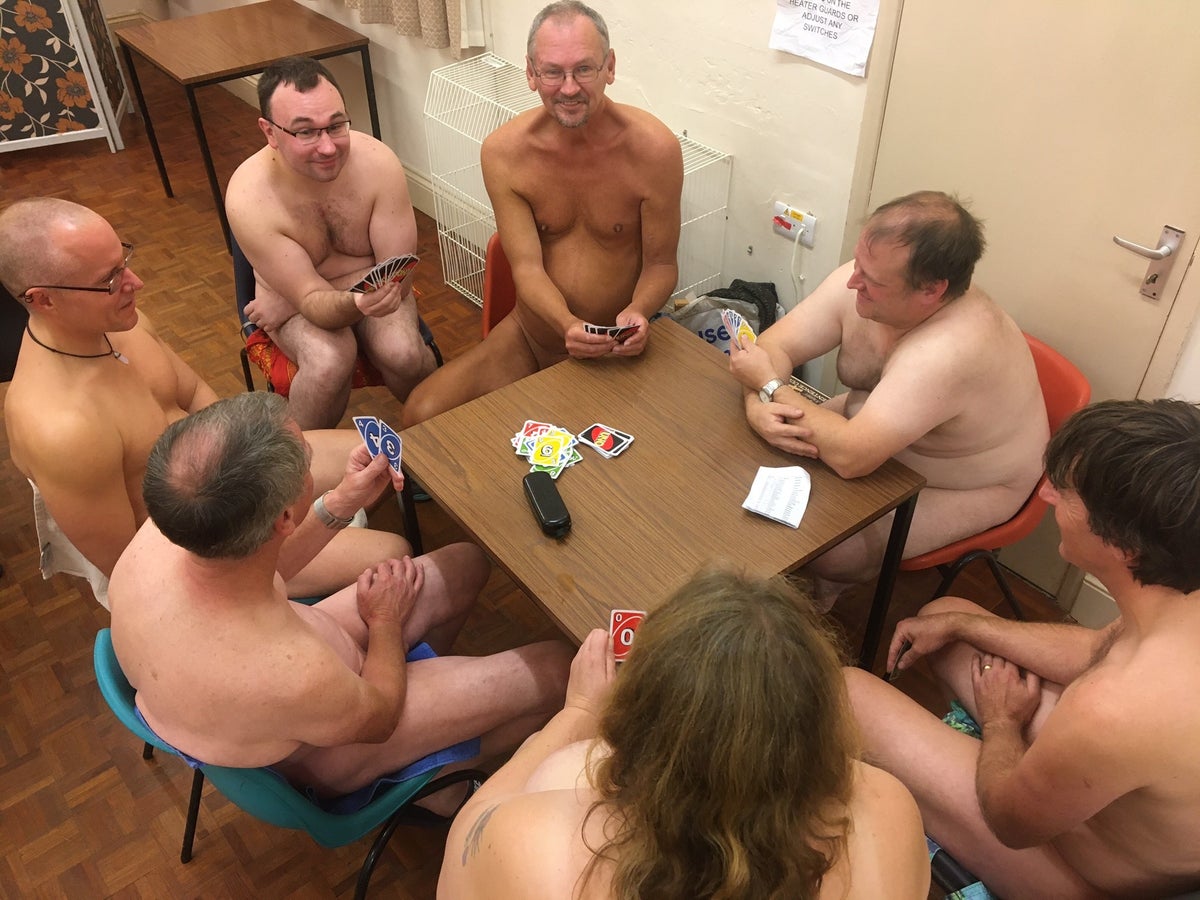
It is 8pm on Saturday night and, in a village hall in the middle of rural Lincolnshire, I am sat as naked as the day I was born playing Snakes and Ladders.
My five opponents – all middle-aged men – are also entirely nude.
Around the room, perched on plastic seats at four or five other tables, another 20 or so blokes and four or five women enjoy chess and Connect Four and Scrabble. All while completely starkers.
Welcome to Naked Lincolnshire’s board games social.
These nudists have travelled from across the county and beyond to the Hemswell and Harpswell Village Hall to do what they enjoy most: go sans stitches in the company of like-minded folk.
They laugh, drink tea and tuck into a homemade cake that someone has baked. A dog has been brought along and sits under a table. The vibe (and the age range) is pure Rotary Club evening. Only there’s nipples and a*** cheeks everywhere.
And me?
I am here – out of my comfort zone as well as my pants – to try and understand why such nudism is suddenly booming across the UK.
An Ipsos survey published last weekend has revealed that 14 per cent of Brits now describe themselves as nudists.
That means an estimated 6.75 million people – roughly one in seven – reckon they like to get their kit off while enjoying activities such as swimming, sunbathing or, yes, playing Snakes and Ladders.
Naked yoga sessions, book clubs, bike rides and dinner-discos can all be found with relative ease online. The UK’s largest nudist resort, The Naturist Foundation in Kent (tagline: “where bare is beautiful”), says that – even within the constraints of a cost of living crisis – visitor numbers have never been higher.

The annual Nudefest weekend, organised by British Naturism, attracted a record 700 attendants this summer. Throughout the last decade the number was never higher than 300.
So Chris Petchey – founder of Naked Lincolnshire and organiser of tonight’s games evening – just what is it about the buff that feels so good?
“It’s just a complete liberation,” says the 57-year-old computer programmer. “By taking your clothes off you remove a layer of separation between yourself and the world, and between yourself and other people. You are allowing yourself to be completely at ease.”
He makes the point that, when you’re naked, no one can form preconceptions about you.
“We could have millionaires in here tonight,” the father of one says. “Or we could have people with absolutely nothing in the bank. And you wouldn’t know the difference. When you don’t have clothes on, people can only judge you on your character.”
His wife Liz – who is not a naturist but is here tonight (fully clothed) making the teas and washing up – considers this theory when I mention it later.
She bats not a northern eyelid when anyone walks into the kitchen with body parts swinging, but does not necessarily concur that no clothes equates to no judgement. “If our neighbours knew we organised things like this,” she says drily, “I think they’d form a pretty quick opinion.”
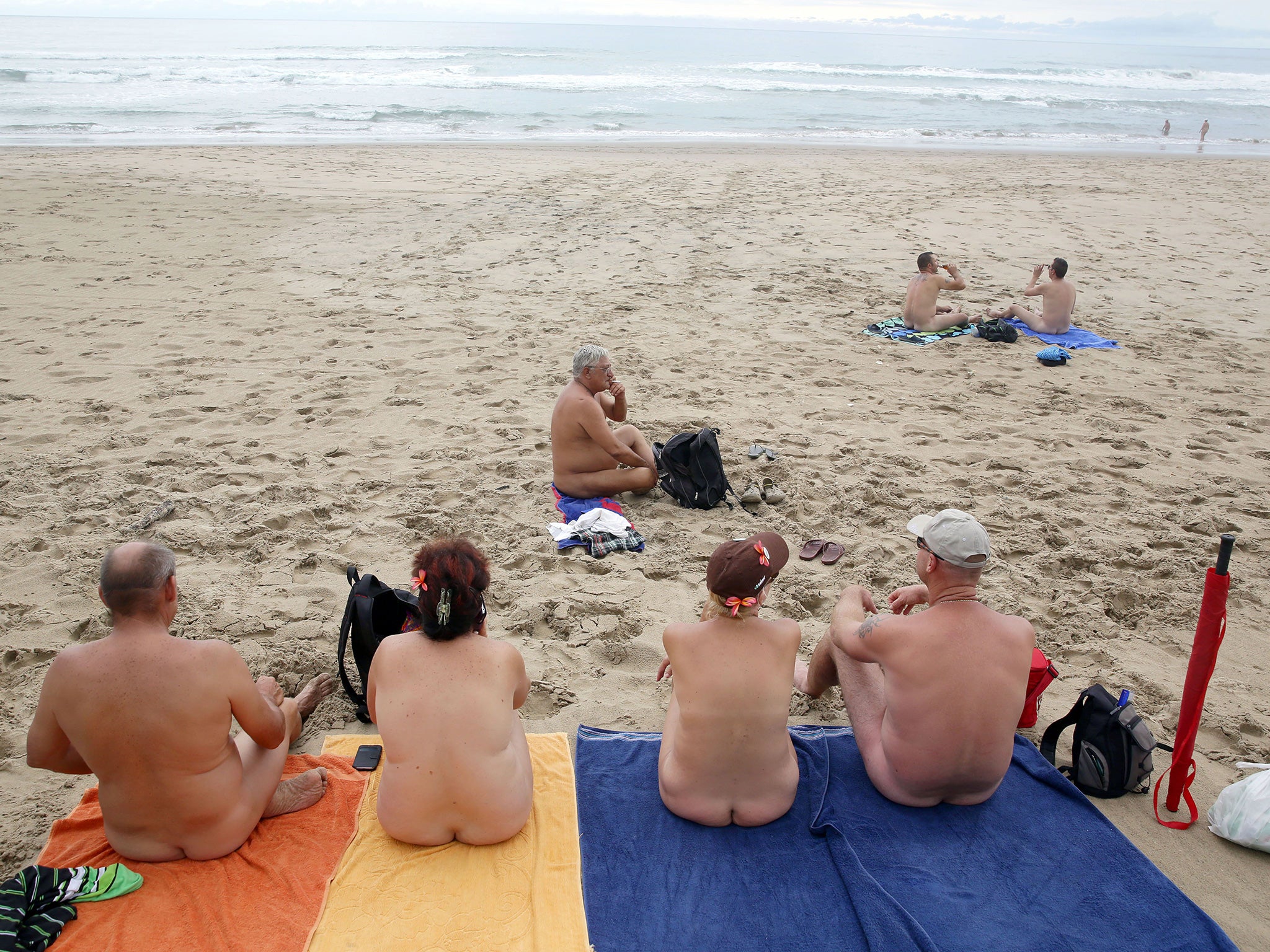
She has the same air as a wife spending her Saturday night at, for instance, her husband’s model railway club. “It’s not something I’d do personally,” she says. “But if it makes him happy…”
Naturism, certainly, is a practice that, by its very essence, tends to elicit nudge-nudge, wink-winks among those who do not necessarily understand it.
In the popular consciousness, it has somehow become linked with suburban swinging and middle-class partner swapping, despite being an avowedly non-sexual pursuit.
At tonight’s games evening there is some unease at a journalist – even a naked one – being present. One man tells a story of a nudist dinner party he once attended being reported in a tabloid as an orgy.
“Not that I have anything against people going to orgies if that’s their thing,” he notes. “It’s just not what this is.”
A pause. “Arousal,” he adds in the tone of a man passing on key information, “is very bad form at a naturist event.”
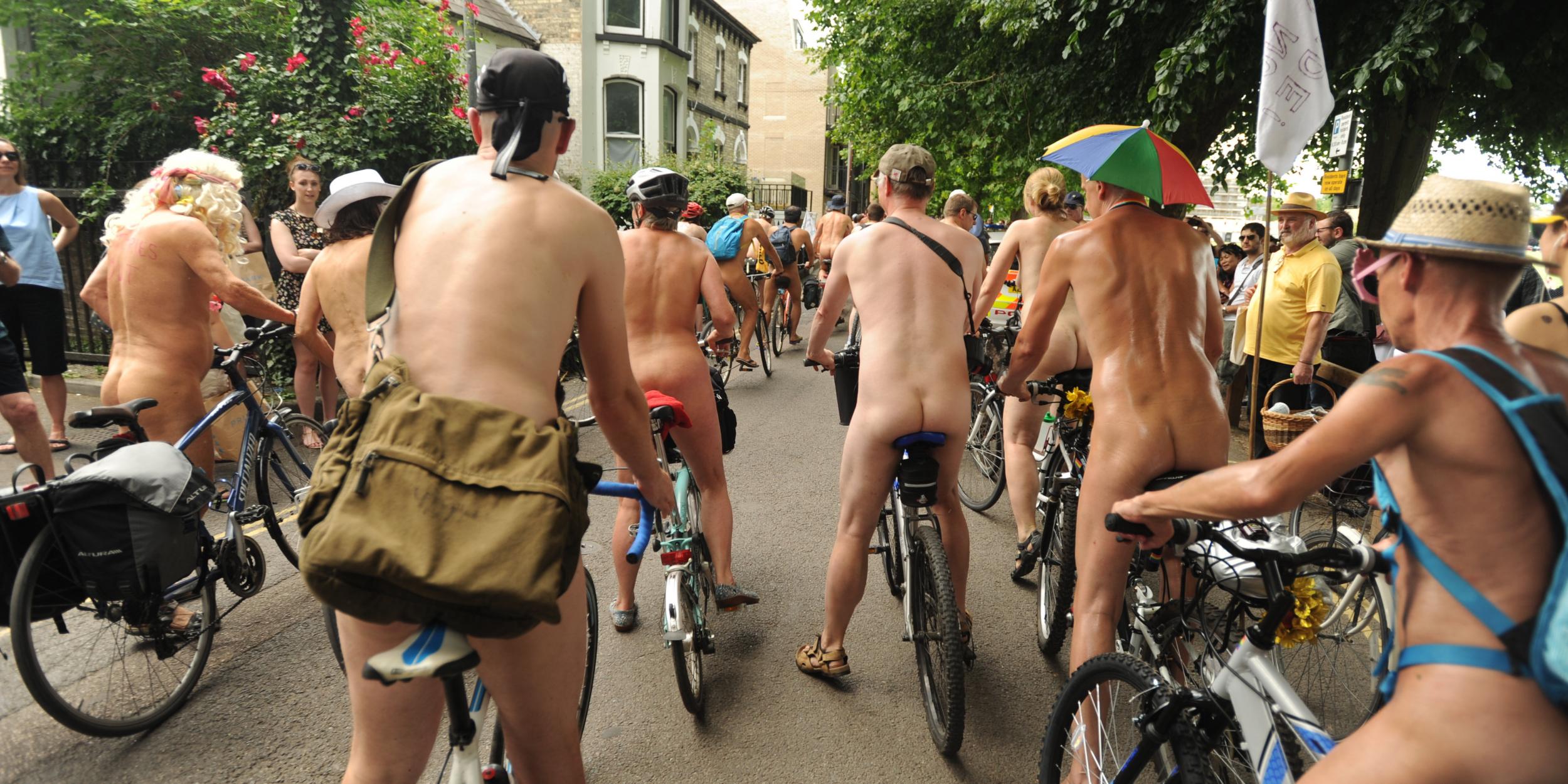
The most common reason for people practising nudism appears, in fact, to be linked to good physical and mental health.
When it first became a thing in the UK in the 1920s, it was on the back of a war, a pandemic and an ongoing economic crisis (sounds familiar?).
The middle classes who practised it – often in rural retreats – were looking for new ways of interacting with a world in which repression and formality dominated social interactions. They combined stripping down with a vegetarian diet and vigorous exercise, and extolled their new lifestyle’s rejuvenating powers.
“Lots of physicians were involved,” says Professor Annebella Pollen, author of Nudism in a Cold Climate. “Sunlight and clean air were considered real healing tools, so exposing one’s whole body to that was very much thought to be an effective way of moving towards a healthier, happier life.”

Today, their theories appear to be not entirely incorrect. A growing body of research suggests time spent naked can lower stress levels, reduce blood pressure and help combat depression. The extra vitamin D one acquires from greater exposure to sunlight helps strengthen bones, boost the immune system and regulate moods.
At the games evening tonight, support worker Anthea Maund – who first got into nudism this year – is undoubtedly convinced of such benefits.
This summer, she and husband Neil attended outdoor events at Lincolnshire’s Wolds Wildlife Park and Thornton Abbey.
“There’s nothing like feeling nature against your body,” she says. “It’s invigorating to have the sun and breeze and grass on you without being restricted by wires and elastic. You come home a different person. You’re glowing and energised.”
That might be so, but it doesn’t exactly explain why now, on a cold autumn night, she’s naked in a stale-aired municipal building with the curtains closed. There’s no sun, breeze or grass in here.
“But it’s a social thing, too,” the 44-year-old mother of three explains. “You make friends doing this. Once you try it, it’s very addictive. You don’t want to wait until summer to do it again.”
What do her friends think? “That I’m insane,” she says. “But I think they’re more curious than they say.”
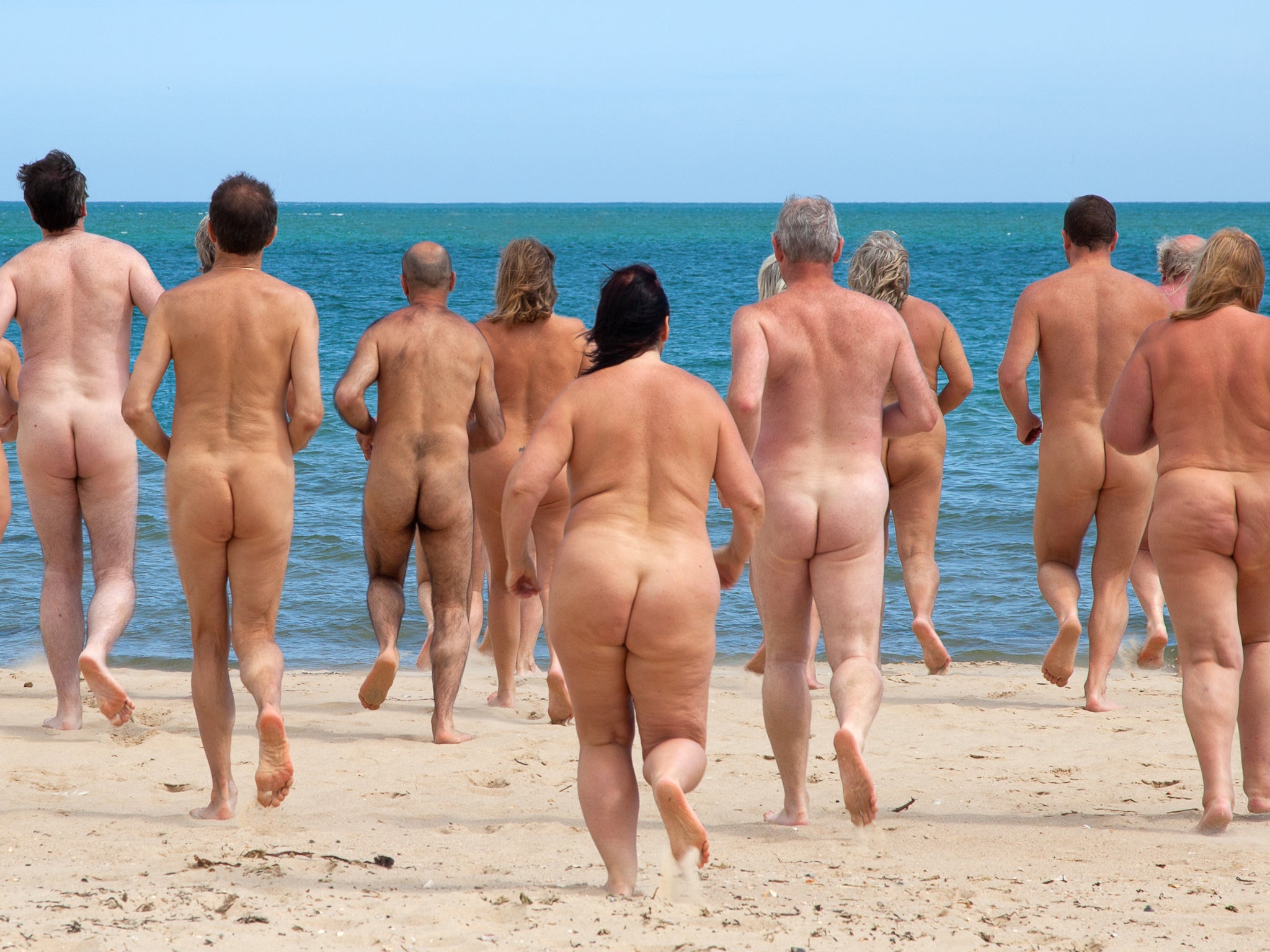
So is it addictive? I confess I’m not totally convinced.
Admittedly, sampling nudism in a Lincolnshire village hall almost certainly isn’t the same sensory experience as, say, sampling it while hiking around the Lake District. Yet I’m afraid I might be one of those repressed types who just enjoys life better in a pair of jeans.
I feel vaguely vulnerable with everything hanging loose. I don’t mean metaphorically. I mean physically. There’s hot tea about after all. Certainly, I demur from sitting at the table with the dog underneath.
Nonetheless, the strange thing perhaps is how boringly normal it all feels within five minutes of kicking your keks off. The standard question of where one’s eyes go becomes almost instantly redundant. When there’s that much skin about, one’s eyes stop noticing it.
For some, in fact, this appears to be the point.
In an age when body image issues are thought to be increasingly prevalent, going naked has given some proponents a new self-confidence.
“I hated my body growing up,” says Paul Siddall this evening. “I hated the thought of even taking my top off in front of people. But doing this just makes you realise that we’re all different. Your wobbly bits make you unique.”
The 30-year-old petrol station supervisor started practising 10 years ago in a bid to become more comfortable with his body, and has never looked back. He remembers telling his mother while they were in Gran Canaria.
“She knew I was gay right from being a teenager and no problem,” he says. “But telling her I was a nudist felt a harder conversation. I told her when we were on holiday together because I wanted to go to a naturist beach. Well, she ended up coming with me and stripping down herself. It was lovely.”
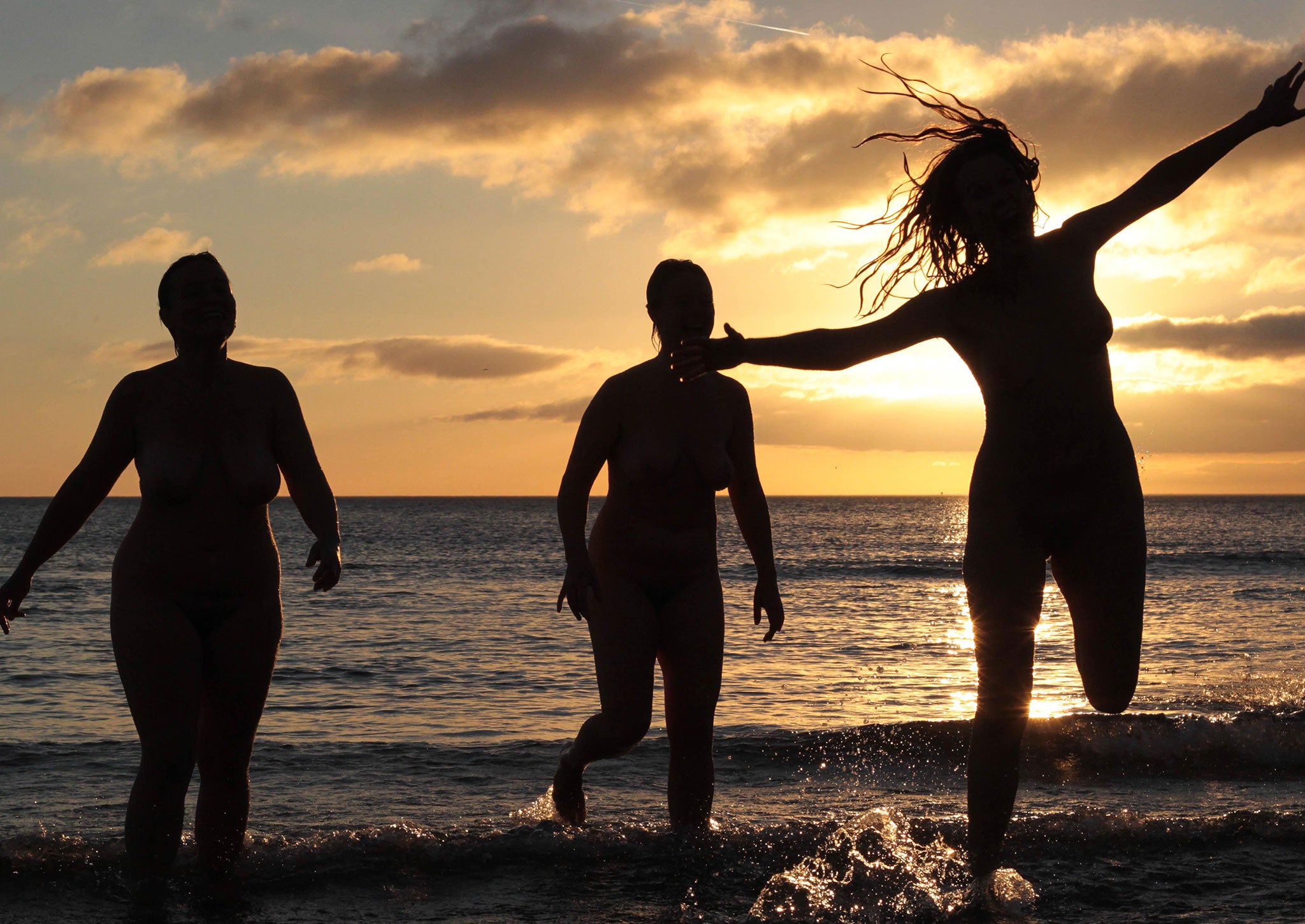
What now, then, for this way of life?
To be naked in public is not actually illegal in the UK. If nudism’s popularity keeps rising – and if we keep getting warmer summers – could we eventually see people walking round our town centres in the buff?
Professor Pollen thinks not.
“It’s an interesting concept,” says the University of Brighton academic. “In the earliest days of nudism, that was actually the dream – that eventually we would all walk about naked. They talked of a day when you would go down Regent Street and not see anyone in clothes.
“But as a society I think we are still at a place where the naked body is commonly associated with sex – so, if you see someone walking around without clothes, it can still be perceived as very threatening, as opposed to the nudist view that it could be something pleasant and benign.”
All the same, tonight, here in Lincolnshire, there is some satisfaction that this hobby is finally being recognised more widely.
“We come into the world with nothing on,” says Petchey as we begin to get dressed. “There’s no reason we shouldn’t spend more of our time that way too.”







